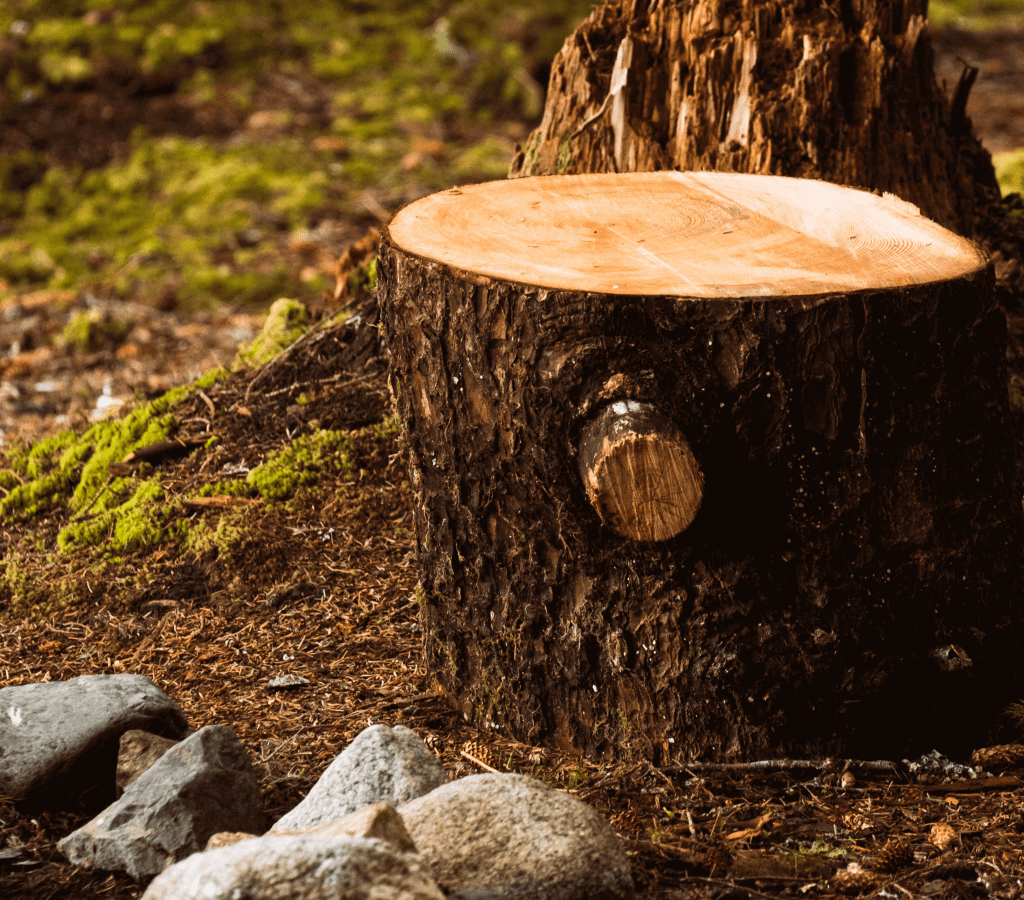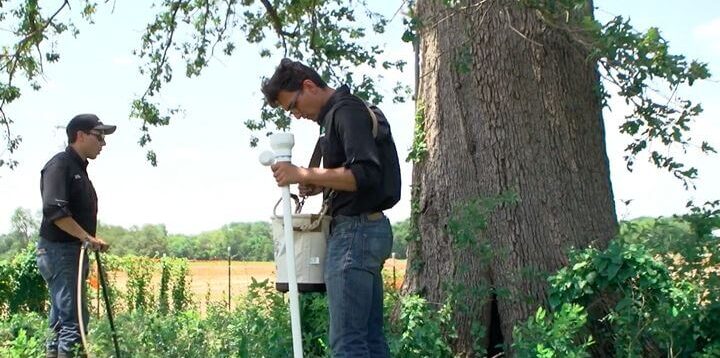Tree Stump Removal Cost
Introduction
When you remove a tree, the stump it leaves behind can become a nuisance. Whether it’s an eyesore in your yard, a hazard for children and pets, or a haven for pests, tree stumps are better off gone. But how much does it cost to remove a tree stump? The answer depends on several factors, such as the size of the stump, its location, and the removal method. This guide covers everything you need to know about tree stump removal costs and offers practical tips to make the process cost-effective.
Factors That Affect Tree Stump Removal Costs
Size of the Stump
The dimensions of the stump play a key role in determining the cost. The larger the stump, the more effort, time, and equipment it takes to remove.
- Diameter and Height Considerations
Tree stump removal services often charge based on the diameter of the stump. For example, a stump 20 inches in diameter can cost significantly more than a smaller 10-inch stump. Taller stumps may also incur extra charges, as they require additional cutting before grinding or excavation. - Why Larger Stumps Cost More to Remove
Larger stumps often have more extensive root systems, which complicates the removal process. Professionals may need heavier machinery or more labor hours, increasing the cost.
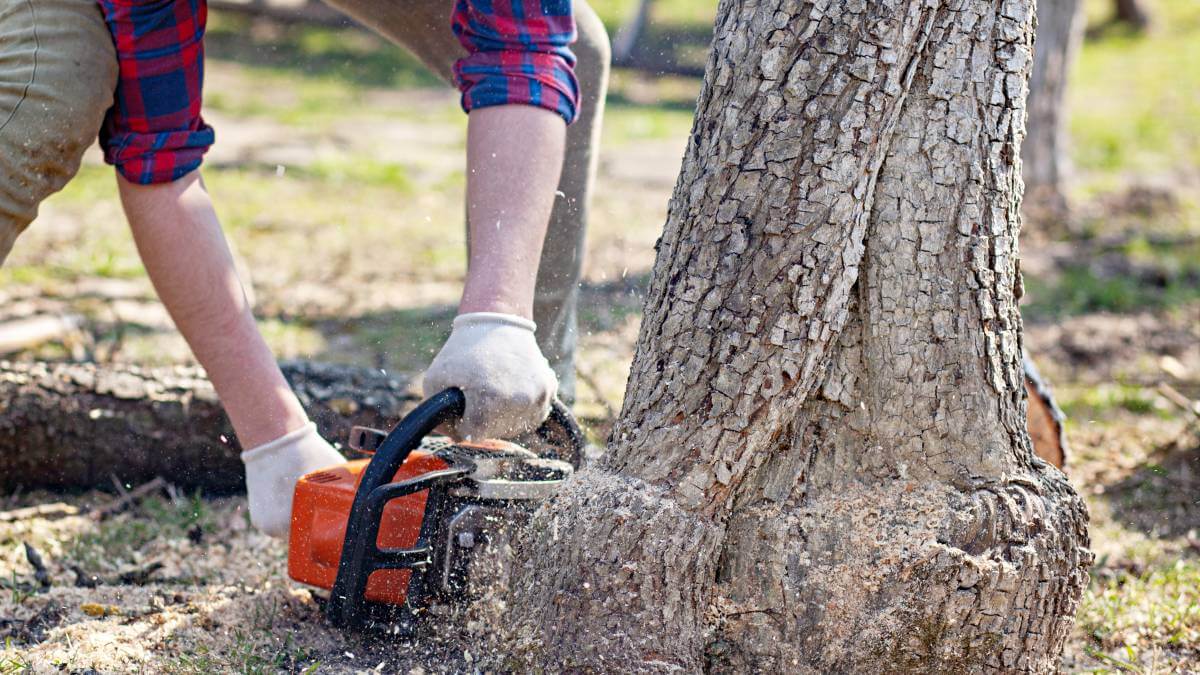
Stump Location
Where your stump is located also plays a huge role in determining removal costs.
- Accessibility and Challenges
Stumps in hard-to-reach areas, such as near fences or under other trees, are harder to remove. Urban locations with limited space or yards with sloped terrain can add to the expense. - Proximity to Structures or Utilities
If the stump is close to your home, a fence, or underground utilities, extra precautions are needed, which can increase labor costs.
The condition of the stump—whether it’s freshly cut or old and rotting—impacts the removal process.
- Rotting vs. Freshly Cut Stumps
Rotting stumps are generally easier to remove because the wood is softer. However, they may have decayed roots intertwined with soil, which can add complexity. - Impact on Removal Difficulty
Freshly cut stumps often require grinding or excavation, as their wood is dense and harder to break down.
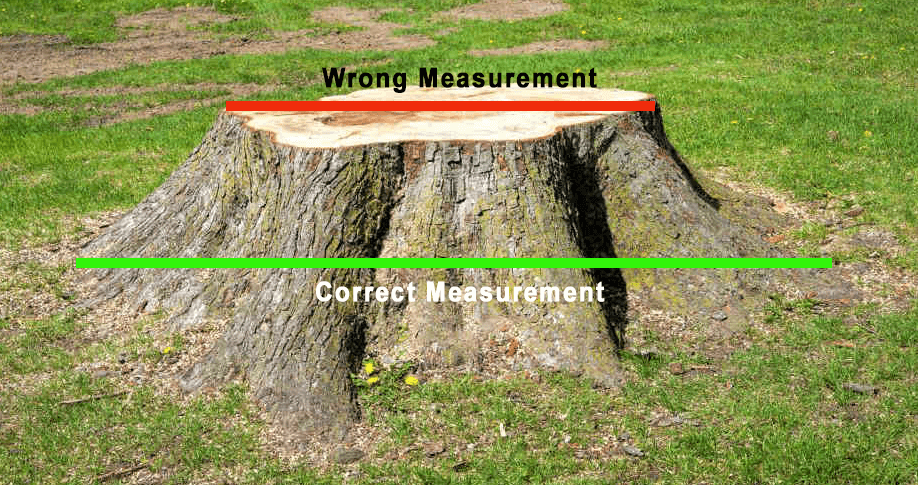
Type of Tree
The type of tree influences the cost due to differences in wood density and root structure.
- Hardwoods vs. Softwoods
Hardwoods like oak and maple are tougher to grind than softwoods like pine, often leading to higher costs. - Root System Complexity
Trees with deep or sprawling root systems can be challenging to remove completely, requiring more work and a higher budget.
Method of Removal
How you choose to remove the stump—whether grinding, excavation, or chemicals—also affects the overall cost.
- Stump Grinding
This is the most common method, where a machine grinds the stump into wood chips. It’s quick but may leave some roots behind. - Excavation and Chemical Removal
Excavation involves physically digging out the stump and roots, while chemical removal relies on decomposing the stump over time. Both methods have varying cost implications based on your needs.
Methods for Tree Stump Removal
Stump Grinding
Stump grinding is one of the most popular and effective methods for removing tree stumps. A specialized machine with a rotating blade is used to grind the stump into wood chips, which can be used as mulch or disposed of.
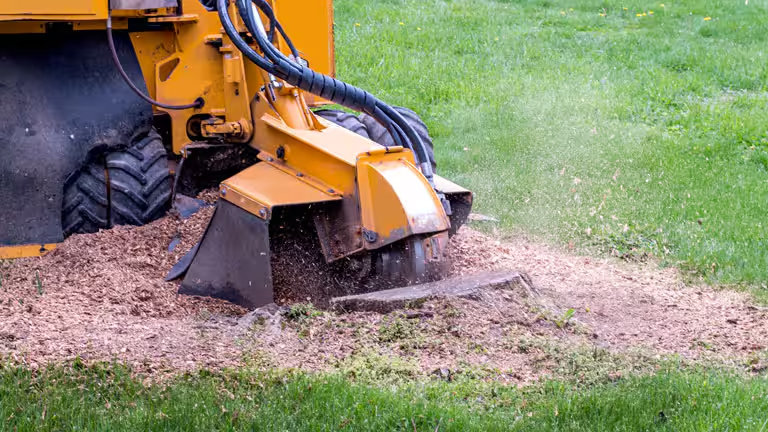
- How It Works
The grinder shaves the stump down to below the surface level, leaving behind a flat area that can be covered with soil or grass. While it’s efficient, stump grinding doesn’t completely remove the roots, which may decompose naturally over time. - Cost Breakdown for Grinding
Stump grinding typically costs between $100 and $400 per stump, depending on its size. The average cost per diameter inch is about $2 to $5. For instance, a 20-inch stump would cost around $40 to $100. Additional fees may apply for cleanup or if the location is hard to access.
Excavation
For complete removal, excavation is the go-to option. This method involves digging out the entire stump along with its root system.
- Manual and Machine Excavation
Manual excavation, suitable for smaller stumps, involves using hand tools like axes and shovels. Larger stumps require heavy machinery, such as backhoes, to remove both the stump and extensive root systems. - Cost Comparison with Grinding
Excavation is more expensive than grinding, ranging from $350 to $700 per stump. However, it’s ideal for situations where replanting or construction is planned, as it leaves the area entirely stump-free.
Chemical Stump Removal
If time isn’t a concern, chemical removal offers a low-cost alternative. It involves applying a stump-dissolving chemical, usually made of potassium nitrate, to speed up decomposition.
- Overview of Chemical Decomposition
Small holes are created in the stump and then filled with a chemical substance. Over weeks or months, the stump softens and can be easily removed or left to decay naturally. - Pros, Cons, and Cost Implications
This method is inexpensive, costing $20 to $100 for the chemicals and tools. However, it’s time-intensive and less effective for large stumps.
Average Costs of Tree Stump Removal
National Averages
Understanding the national averages helps homeowners budget effectively for stump removal.
- Cost Per Stump vs. Per Diameter Inch
On average, removing a single stump costs between $100 and $300. For pricing based on diameter, expect to pay around $2 to $5 per inch. For multiple stumps, services often offer discounted rates. - Typical Price Ranges
- Small stumps (5-10 inches): $75–$150
- Medium stumps (11-20 inches): $150–$300
- Large stumps (21+ inches): $300–$600 or more
Additional Costs
Some removal jobs come with additional expenses that can increase the overall cost.
- Root Removal
If root removal is necessary, you may incur an extra fee ranging from $50 to $150. Extensive root systems can add significant time and labor to the process. - Cleanup and Landscaping After Stump Removal
Removing the stump often leaves behind wood chips or debris. Cleanup services may charge $50 to $200. Additionally, replanting or restoring the area can cost extra, depending on your landscaping needs.
DIY vs. Professional Stump Removal
Cost-Saving Potential
Removing a stump yourself can save money, but it requires time, effort, and the right tools.
